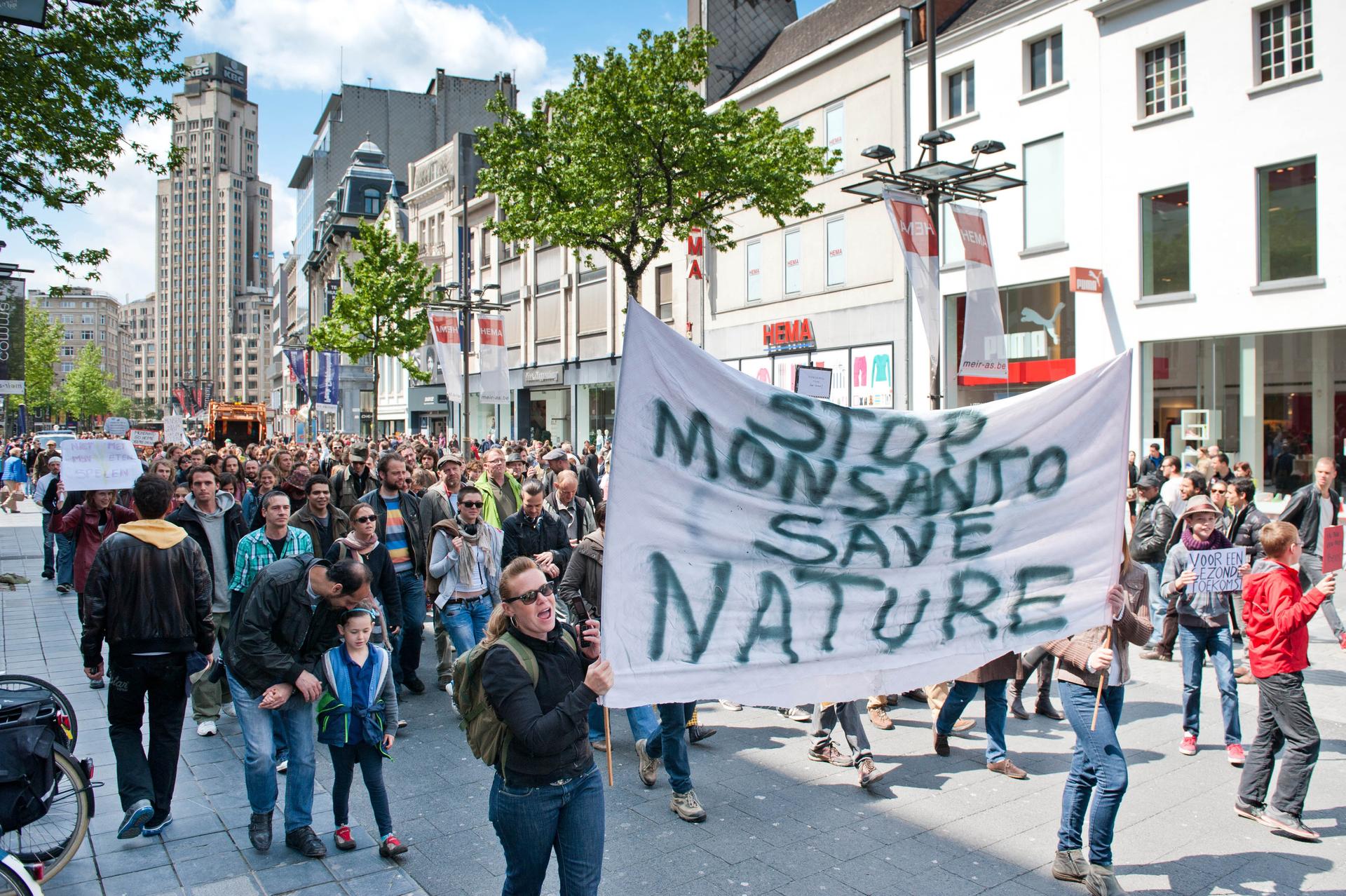‘March Against Monsanto’ draws protesters in 52 countries
Protesters march on the Meir in Antwerp, Belgium, during a demonstration against American multinational agricultural biotech company Monsanto on May 25, 2013.
Thousands of concerned citizens in 436 cities in 52 countries took to the streets on Saturday to protest the genetically modified food that St. Louis-based seed company Monsanto produces.
Organizers of the “March Against Monsanto” said it was the first coordinated global protest against genetically modified food, according to the Los Angeles Times.
Monsanto makes seeds that have been genetically engineered to boost nutrition or improve crop yields. The company says the seeds help increase the world’s food supply while conserving natural resources like water and energy.
Protesters in Argentina, where nearly 100 percent of soy and grains sold are grow from genetically modified seeds, brandished signs reading, "Monsanto – Get out of Latin America," the Associated Press reported.
"Food is a basic human right, and it should be assumed that it's safe to eat," Melanie Douty-Snipes, part of a family that owns Snipes Farm in Bucks County, Pa., told the Philadelphia Inquirer during the protest in Philadelphia. " And genetically modified food isn't safe. But you don't know that when you see an apple in a store."
The US Food and Drug Admin. has said there's no difference between genetically modified and non-genetically modified foods.
Earlier this week, the US Senate rejected a bill that would have permitted states to require manufacturers to label genetically modified foods, the LA Times reported.
The Biotechnology Industry Organization, a lobbying group that represents genetically modified seed companies like Monsanto, had said that mandatory labeling would mislead consumers into thinking GMO foods aren't safe, the AP reported.
The story you just read is accessible and free to all because thousands of listeners and readers contribute to our nonprofit newsroom. We go deep to bring you the human-centered international reporting that you know you can trust. To do this work and to do it well, we rely on the support of our listeners. If you appreciated our coverage this year, if there was a story that made you pause or a song that moved you, would you consider making a gift to sustain our work through 2024 and beyond?
